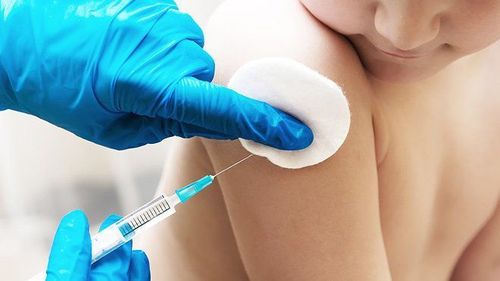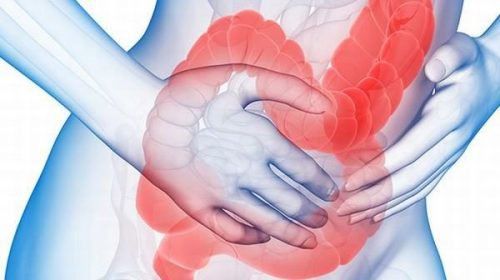This is an automatically translated article.
Health check-ups for children are not yet widely implemented in our country, but this is one of the necessary things during the process of taking care of children. 6-month-old babies are entering important developmental milestones related to both physical and intellectual. 6-month-old babies examine what questions parents often ask themselves. This article provides an overview of what to do during a health checkup for a 6-month-old baby.1. What will the doctor do during a physical examination of a 6-month-old child?
1.1 Weighing and measuring the child The child should be completely undressed prior to weighing, similar to previous visits. The doctor will then weigh the baby, measure the length and circumference of the head, and plot the measured results on a growth chart.Growth chart allows to compare the child's development with other children of the same age through percentile lines. The percentile line value noted on the chart doesn't really matter, as long as the child's growth rate tends to increase steadily between different visits.
1.2 Comprehensive Clinical Examination Cardiovascular and Respiratory: The doctor uses a stethoscope to listen for heart rate and breathing sounds, to detect any abnormal heart rhythms or breathing-related problems.
Eyes: Check for abnormalities of congenital eye diseases and other problems. In addition, the doctor may also check the lacrimal ducts, the secretion and circulation of tears. Your doctor can detect a blocked tear duct and abnormal discharge.
Ears: Look for signs of infection and observe how your baby responds to sounds.
Mouth: Signs suggestive of an infection such as thrush - a fungal infection of the mouth, and abnormalities of the tongue, gums, lining of the cheeks and throat.
Head: In addition to measuring the baby's head circumference, the doctor also checks the baby's soft spots and head shape. Some babies may show signs of flat head from lying in a supine position for a long time.
Whole body: The baby's reflexes and muscle tone are factors to check during the physical examination of a 6-month-old child. In addition, during the process, the child is also checked simultaneously the baby's skin condition to look for jaundice, rashes and congenital birthmarks if any. Your 6-month-old needs to be evaluated for muscle control when sitting upright, as well as how he or she reaches out, grabs objects, and interacts with people around them.
Abdomen: The doctor usually presses lightly on the abdominal wall to check for the presence of a hernia or any abnormally enlarged organs.
Genitals: Open your baby's diaper and check for signs of infection in the external genitalia and urinary system. Finding and excluding signs of infection is routine.
Hips and legs: The doctor will move the baby's legs to look for signs of abnormalities related to the hip joint.
1.3 Vaccinate children for certain diseases Children 6 months old can be vaccinated against hepatitis B, polio, meningococcal, Hib and oral Rotavirus vaccine. Children will also receive their first flu shot during a flu season. Doctors should have a medical assistant take care of scheduling immunizations for each child, as well as remind parents when it is time to schedule, so as not to miss important milestones. Vaccinations are usually recommended at the end of each visit so that parents have time to comfort the child and not interfere with the rest of the visit.

Trẻ em 6 tháng tuổi có thể sẽ được tiêm phòng viêm gan B, bại liệt, viêm não mô cầu, Hib và uống vắc – xin vi rút Rota
Questions a doctor may ask at a 6-month-old baby's check-up
How do children sleep? Baby's sleep habits are still erratic at this age, but most babies will sleep in cycles of 2-3 hours during the day and at night. Total sleep time per day is about 14 to 15 hours.Does your baby seem ready for solid foods? Around 4 to 6 months of age is the recommended age to start giving your baby solid foods – that is, your baby's first solid food paste. Your doctor can help you decide how to feed your baby, if the mother hasn't actually started yet. Be sure to tell your doctor about any food allergies that run in your family
How does your child have bowel movements? When your baby starts to eat solid foods, his bowel movements will become harder and smelly. But in general, your baby's poop should still be quite soft to be considered normal. Dry stools or small pellets are a sign of dehydration, or constipation. Let your child's doctor know if you notice this.
Can the child roll over or sit up on his own? By 6 months, many babies can roll both ways (front to back and front to back) and sit without support, although some need a little more time to master these skills. If your child has not yet learned to roll over in at least one way, tell your child's doctor.
Has your baby started teething yet? Some babies get their first tooth as early as 6 months - or even earlier. Your baby may experience redness, swelling, and sore gums while the teeth are coming in. Your doctor can suggest ways to soothe your baby's gums. When the first tooth comes in, the doctor will advise your child to drink fluoridated water or use fluoride drops.

Một số trẻ mọc chiếc răng đầu tiên sớm nhất là vào 6 tháng tuổi - hoặc thậm chí sớm hơn
Is the child interested in the world around him? At this point, your baby has mastered the game of exploring, putting objects in his mouth and smashing, dropping or throwing objects. Tell the doctor if your baby doesn't seem interested in toys or other objects.
How are your baby's fine motor skills? She can reach and grab objects, and she can also use her hands to sweep small objects toward her and transfer objects from one hand to another.
How are your baby's gross motor skills? Your baby should be able to bear the weight on her feet when you pick her up. Bowed legs and round feet - arched up instead of flat to walk - are normal at this age, but if your baby moves in a way that worries you, favors one leg, seems to lean to the side when he's move or tend to use only one hand, let your doctor know.
Have you noticed anything unusual about your baby's eyes or the way he sees things? At each baby's physical exam, the doctor should check the structure and alignment of the baby's eyes and correct movement. By 6 months, babies should be able to control their eye movements and sometimes no longer appear crossed eyes.
How is your baby's hearing? If your baby doesn't turn his head to the sound, tell the doctor. The sooner potential hearing problems are investigated, the better chance they have of recovery.
Currently, Vinmec International General Hospital has a general health checkup program for children under 18 years old. The baby will have a comprehensive health examination such as: weight, height, blood pressure, head circumference, ear - nose - throat, liver, kidney, blood, nutrition, oral health, hepatitis B, iron quantitative assessment, calcium, vitamin D, zinc.... If any health problems are detected in children, they will be treated with experienced and highly qualified specialists. Vinmec is one of the few hospitals in Vietnam that has a team of doctors and nurses specializing in nutrition, neurology, oncology, digestive, hepatobiliary, respiratory... right at the Pediatric Department. The baby will receive intensive treatment with the latest and most effective treatment regimens today without having to move much between departments, shortening the treatment time and bringing the best effect.

Cha mẹ sẽ được hỏi về một vài vấn đề của trẻ như thính giác, thị giác của bé hay vấn đề mọc răng,...
Please dial HOTLINE for more information or register for an appointment HERE. Download MyVinmec app to make appointments faster and to manage your bookings easily.









![[Video] How to take care of children in summer?](/static/uploads/small_20190730_112639_927206_cham_soc_tre_mua_he_max_1800x1800_png_7a3b48f9f3.png)



